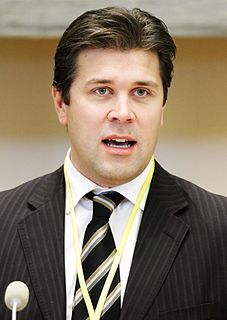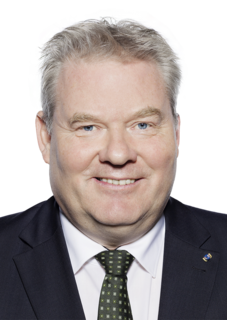| |||||||||||||||||||||||||||||||||||||||||||||||||||||||||||||||||||||||||||||||||||||||||||||||||||||||||||||||||||||||||||||||||
| |||||||||||||||||||||||||||||||||||||||||||||||||||||||||||||||||||||||||||||||||||||||||||||||||||||||||||||||||||||||||||||||||
All 63 seats in the Althing 32 seats needed for a majority | |||||||||||||||||||||||||||||||||||||||||||||||||||||||||||||||||||||||||||||||||||||||||||||||||||||||||||||||||||||||||||||||||
|---|---|---|---|---|---|---|---|---|---|---|---|---|---|---|---|---|---|---|---|---|---|---|---|---|---|---|---|---|---|---|---|---|---|---|---|---|---|---|---|---|---|---|---|---|---|---|---|---|---|---|---|---|---|---|---|---|---|---|---|---|---|---|---|---|---|---|---|---|---|---|---|---|---|---|---|---|---|---|---|---|---|---|---|---|---|---|---|---|---|---|---|---|---|---|---|---|---|---|---|---|---|---|---|---|---|---|---|---|---|---|---|---|---|---|---|---|---|---|---|---|---|---|---|---|---|---|---|---|---|
| Turnout | 201,777 (81.2% | ||||||||||||||||||||||||||||||||||||||||||||||||||||||||||||||||||||||||||||||||||||||||||||||||||||||||||||||||||||||||||||||||
| |||||||||||||||||||||||||||||||||||||||||||||||||||||||||||||||||||||||||||||||||||||||||||||||||||||||||||||||||||||||||||||||||
Map of the election results, showing the seats won by each party in each of the 6 multi-member constituencies. | |||||||||||||||||||||||||||||||||||||||||||||||||||||||||||||||||||||||||||||||||||||||||||||||||||||||||||||||||||||||||||||||||
| |||||||||||||||||||||||||||||||||||||||||||||||||||||||||||||||||||||||||||||||||||||||||||||||||||||||||||||||||||||||||||||||||
 |
|---|
| This article is part of a series on the politics and government of Iceland |
| Constitution |
Institutions |
Parliamentary elections were held in Iceland on 28 October 2017. On 15 September 2017, the three-party coalition government collapsed after the departure of Bright Future over a scandal involving Prime Minister Bjarni Benediktsson's father writing a letter recommending a convicted paedophile have his "honour restored". [1] Bjarni subsequently called for a snap election, [2] which was officially scheduled for 28 October 2017 following the dissolution of the Althing.

Iceland is a Nordic island country in the North Atlantic, with a population of 348,580 and an area of 103,000 km2 (40,000 sq mi), making it the most sparsely populated country in Europe. The capital and largest city is Reykjavík, with Reykjavík and the surrounding areas in the southwest of the country being home to over two-thirds of the population. Iceland is volcanically and geologically active. The interior consists of a plateau characterised by sand and lava fields, mountains, and glaciers, and many glacial rivers flow to the sea through the lowlands. Iceland is warmed by the Gulf Stream and has a temperate climate, despite a high latitude just outside the Arctic Circle. Its high latitude and marine influence keep summers chilly, with most of the archipelago having a tundra climate.

Bright Future is a liberal political party in Iceland that was founded in 2012.

The Prime Minister of Iceland is Iceland's head of government. The prime minister is appointed formally by the President and exercises executive authority along with the cabinet subject to parliamentary support.
Contents
- Background
- Candidates and campaign
- Electoral system
- Participating parties
- Opinion polls
- Results
- Government formation
- Four-party coalition talks
- Three-party coalition talks
- Further reading
- Footnotes
- References
Though many opinion polls in the run-up to the election indicated an increase in support for the Left-Green Movement, the Independence Party retained its position as the Althing's largest party. [3] Following the election, four-party coalition talks led by the Left-Greens ensued; however, after the Progressive Party rejected the possibility, a three-party coalition led by the Left-Greens including the Independence Party and Progressive Party was negotiated. After formally receiving the mandate to form a coalition on 28 November, Left-Green leader Katrín Jakobsdóttir was designated Prime Minister to lead the new government on 30 November.

The Left-Green Movement is a eco-socialist political party in Iceland. It is the second largest party in the Althingi, with 11 members of 63 in total, and is currently the leading party in a three-party coalition government formed after the 2017 elections. The party chair is Katrín Jakobsdóttir, MP and the 28th Prime Minister of Iceland since 30 November 2017. The vice chair is Edward H. Hujibens. The secretary-general of the party is Björg Eva Erlendsdóttir. The Left-Green Movement is a member of the Nordic Green Left Alliance.

The Independence Party is a liberal-conservative, Eurosceptic political party in Iceland. It is currently the largest party in the Althing, with 16 seats. The chairman of the party is Bjarni Benediktsson. The secretary of the party is Áslaug Arna Sigurbjörnsdóttir.

The Progressive Party is a centre-right, populist and agrarian political party in Iceland. For most of its history, the Progressive Party has governed with the centre-right liberal conservative Independence Party.





















